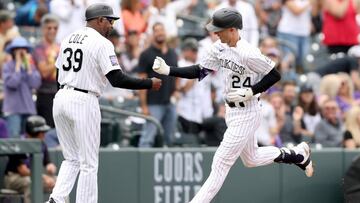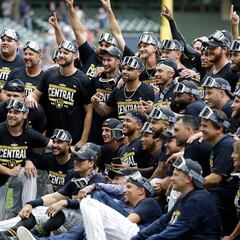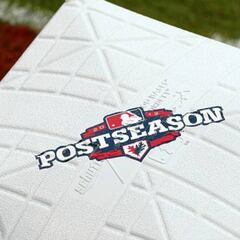How does the MLB playoff Wild Card work?
As we watch the heat developing in the American League Wild Card race, we might be forgiven for wondering what in the world is going on. Our hearts pump, sure. The excitement builds, but at the end of the day, do we know who won? How can a team finish third, or fourth, or maybe even fifth be considered for the post season? What gives?

Where did all this get started?
On the road to the World Series, Major League Baseball has devised a playoff system which insures that you can combine your love of summer with all the joy of doing your taxes. What started as a simple series of baseball games to decide whether the champions of the National League or the champions of the American League were the overall best team in the country. In fact, prior to 1904, each league simply sent the team with the best record, without any sort of playoff to earn that spot.
The early years were marked by disarray as the National League refused to face the “inferior” American League, rules were agreed between team owners with no uniformity, going so far as to decide that in the fall of 1902, the two teams decided that they would face each other in a game of football instead of baseball. When they did play baseball, the number of games varied wildly between as few as three and as many as fifteen games, with two early series ending in a tie due to the series being an even number rather than odd.
Order was definitely needed and over the past century the arcane calculations that have increasingly become part of the heart and soul of baseball were developed to finally answer that burning question of who is really the best team in baseball. And where we have wound up is with a calculation that is as simple as an actuarial audit.
Other MLB stories:
- Brewers Williams breaks hand in division clinching celebration
- 2021 MLB Playoff picture: how many spots are still to be decided
- MLB roundup: Yankees flip wildcard
Step by Step in the postseason
The MLB playoffs are actually divided into four parts, the Wild Card Game, the Division Series, the League Championship series, and the World Series. The two professional baseball leagues that make up MLB, the National League and the American League are in turn divided into divisions, East, Central, and West. The top team of each of these divisions are automatically in the Division Series.
In order to compete for the pennant, there needs to be a fourth team involved, and this team is known as the Wild Card team. Owing to arguments about comparing difficulty of schedules, how many road games versus how many home games and that sort of thing, it was decided that the top two teams made up of the rest of teams across all three divisions would have a single game to decide who would attend the Division Series in the Wild Card spot.
The @Mariners are just 0.5 games behind the second Wild Card. pic.twitter.com/PAUVl4EnjG
— MLB (@MLB) September 29, 2021
The winner of this single Wild Card Game will then move on to join the three Division leaders in a traditional playoff format, with the Wild Card team facing the team with the best record and the other two playing each other. The Division series is a best-of-five tournament with the first team to get three wins advancing to the League Championship Series, also known as the Pennant game since the winner is presented with that Division’s pennant to fly proudly above their ground.
The League Championship Series sees the two Division Series winners face each other in a seven game series where the winner takes home the League pennant and will represent the league in the World Series. The World Series is also a best-of-seven and the first team to get to four wins are declared overall champions.
Home Field Advantage
Throughout this process, the question of home field advantage is always at the forefront of everyone’s mind. All series are made up of odd numbered games and the team with the better regular season record will start the series with two home games before moving to the opponent’s ground. If a game five is required, the teams will return to the first team’s ground giving them a greater number of games at home and thus the advantage. The only time when the team with the better record is not considered is in the case of a Wild Card team advancing through the rungs of the playoff ladder, where the other team will have home field advantage regardless.
Both of the seven-game series, the League Championship Series and the World Series, are formatted in a 2-3-2 pattern, whereby the home team will host games one and two, followed on by six and seven if they should become necessary. This is a pattern made official only in 2017. Previously, the home field advantage was given to the league which won the now completely meaningless All-Star Game.
Here's a quirk in the MLB playoff format: How #Dodgers could get ultimate home-field advantage even as wild card ... (this could apply to #SFGiants too) https://t.co/YY8Wov8Ed3
— Bill Shaikin (@BillShaikin) September 20, 2021
Players’ Bonus
Related stories
Every player in the entire postseason is entitled to a bonus payment which is made up of a pool consisting of 60% of the gate receipts from both of the Wild Card Games, the first three Division Series games, and the first four of the League Championship and World Series games. The remaining gate receipts are divided between the two leagues, the Major League Baseball Commission and the teams involved. This division of the earnings was put in place in an effort to discourage players from throwing an early game in order to extend the series.
Which player receives what is actually left to the players themselves to decide. In a meeting chaired by union representatives, they decide who gets an full share, a partial share or a cash award based on how much of the season they have spent with the club.

